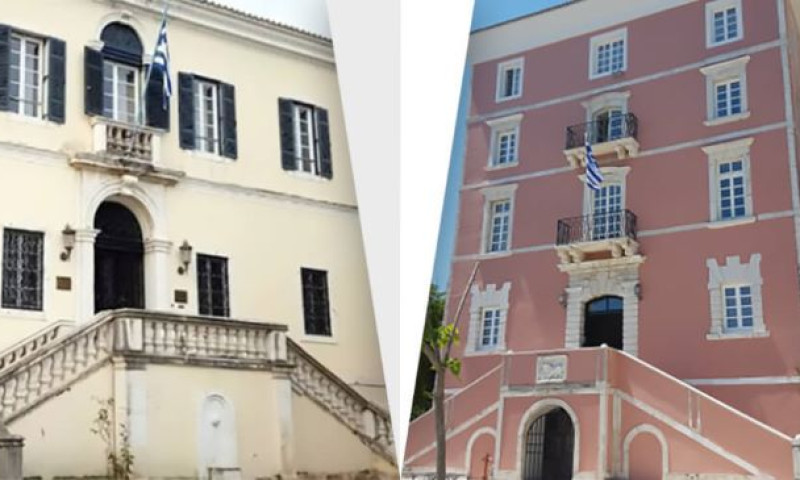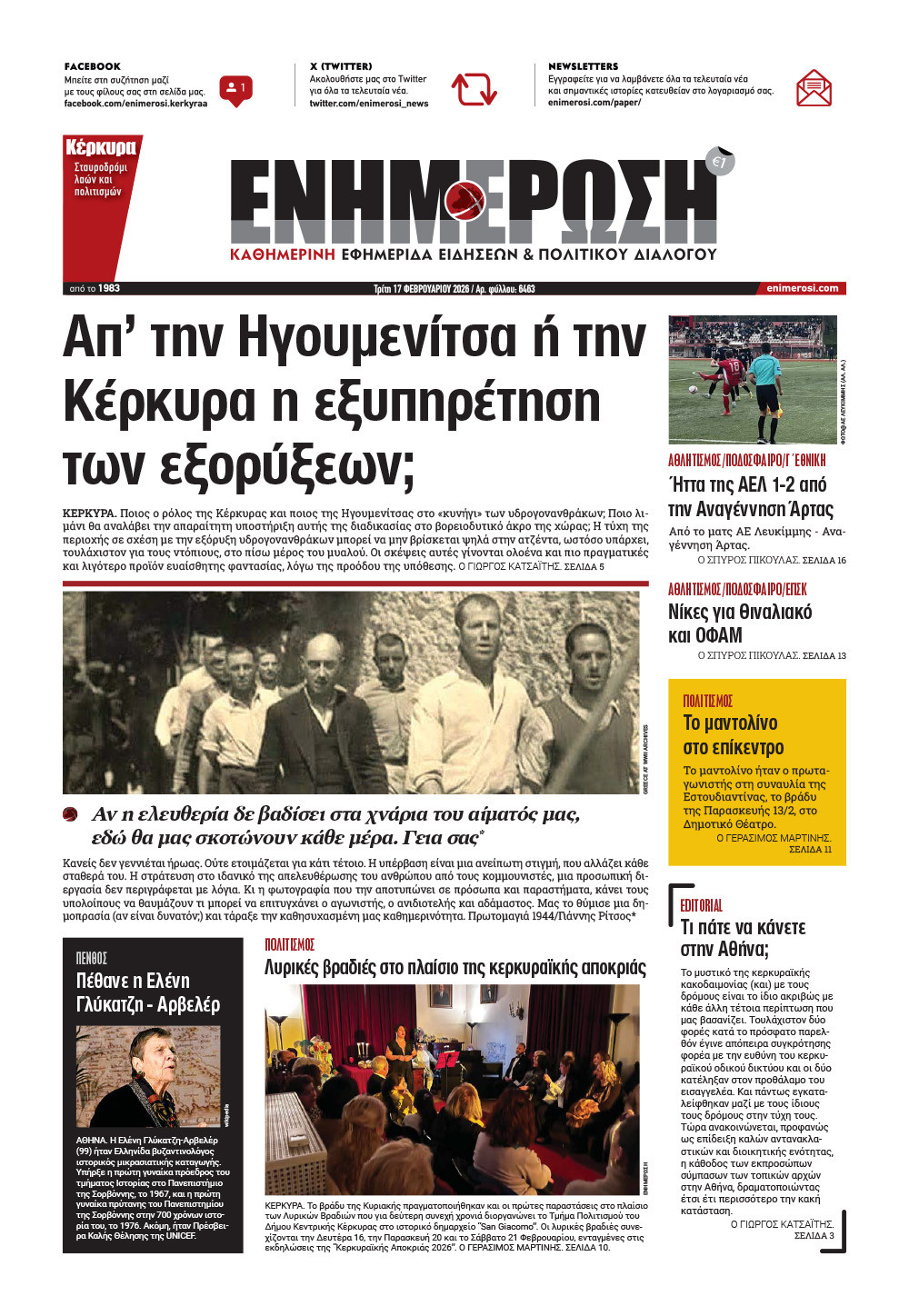Purchase of Bank of Greece building by Ionian University agreed

Bank of Greece
02 Aug 2022
/ 09:39
CORFU. The purchase of the iconic Bank of Greece building signals the beginning of the Ionian University building expansion programme.
The purchase of the Bank of Greece building in Corfu Town by the Ionian University was recently agreed by both parties following the university's offer, which was approved by the Bank's General Council.
The property is undoubtedly one of the town's iconic buildings with an area of 1,272.84sq.m. comprising basement, ground floor and first floor and set in an area of 1,554.45sq.m. in Dimarchou Kolla St.
The agreed purchase price is €2.4m, which will be funded by the National Development Programme.
The purchase of the building signals the beginning of the Ionian University building expansion programme in order to immediately develop and support the university's educational and research needs. The building is ideally situated to provide access to members of the academic community.
Moreover, in contrast to other properties that have been considered at other times but which require a lot of work due to years of neglect. the Bank of Greece building is ready for use with only a little work needing to be done. This is the most significant benefit of acquiring this building to fulfil the needs of the university to grow and develop without having to suffer delays due to waiting for decisions to be taken and permissions to be granted.
The Dean of the Ionian University Andreas Floros issued the following statement:
"The purchase agreement for the Bank of Greece building is of great significance for the Ionian University. The building is ready for use for educational and research purposes, providing an immediate solution to the long-term accommodation problem faced by the Ionian University on all the islands and especially in Corfu Town. The university is committed to making full use of the building, respecting its historical importance and assuring continuous accessibility to the local community through educational, cultural and social activities organised by the university, as is the obligation of any public higher educational institute.
I would like to give warm thanks to the board of the Bank of Greece, the Director Yiannis Stournaras and the Deputy Director Theodoros Pelagidis for the excellent collaboration and communication and for the mutual understanding of the need for the purchase in the public interest. We also would not have been able to have this positive outcome if this mutual understanding had not also extended on a broader national political and social level."
The property is undoubtedly one of the town's iconic buildings with an area of 1,272.84sq.m. comprising basement, ground floor and first floor and set in an area of 1,554.45sq.m. in Dimarchou Kolla St.
The agreed purchase price is €2.4m, which will be funded by the National Development Programme.
The purchase of the building signals the beginning of the Ionian University building expansion programme in order to immediately develop and support the university's educational and research needs. The building is ideally situated to provide access to members of the academic community.
Moreover, in contrast to other properties that have been considered at other times but which require a lot of work due to years of neglect. the Bank of Greece building is ready for use with only a little work needing to be done. This is the most significant benefit of acquiring this building to fulfil the needs of the university to grow and develop without having to suffer delays due to waiting for decisions to be taken and permissions to be granted.
The Dean of the Ionian University Andreas Floros issued the following statement:
"The purchase agreement for the Bank of Greece building is of great significance for the Ionian University. The building is ready for use for educational and research purposes, providing an immediate solution to the long-term accommodation problem faced by the Ionian University on all the islands and especially in Corfu Town. The university is committed to making full use of the building, respecting its historical importance and assuring continuous accessibility to the local community through educational, cultural and social activities organised by the university, as is the obligation of any public higher educational institute.
I would like to give warm thanks to the board of the Bank of Greece, the Director Yiannis Stournaras and the Deputy Director Theodoros Pelagidis for the excellent collaboration and communication and for the mutual understanding of the need for the purchase in the public interest. We also would not have been able to have this positive outcome if this mutual understanding had not also extended on a broader national political and social level."












